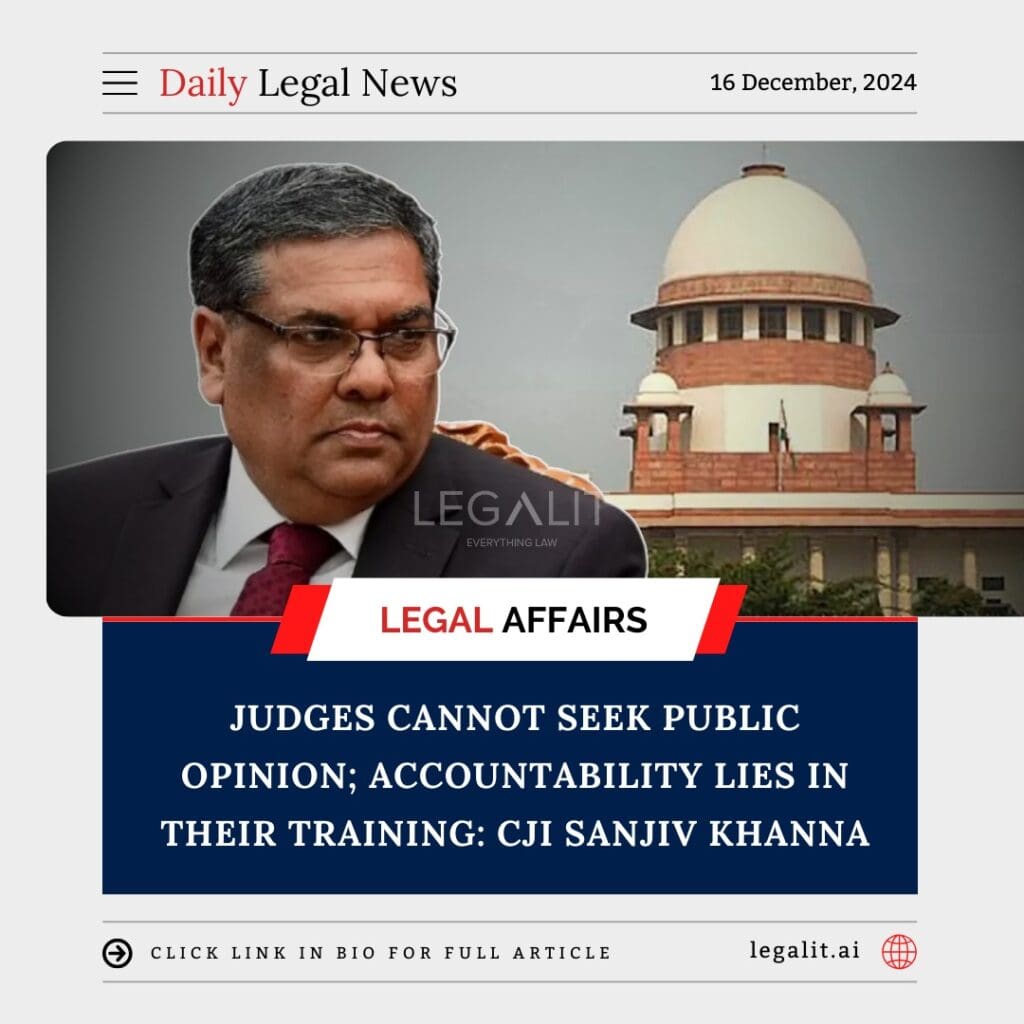
Chief Justice of India (CJI) Sanjiv Khanna recently stated that judges should not seek public opinion on legal matters and that their accountability comes from their professional training and judicial responsibilities. This statement was made in response to concerns about public perception and the growing trend of judges being subjected to public pressure regarding their decisions.
Background:
The remark by CJI Sanjiv Khanna came in the context of discussions on the independence of the judiciary and the increasing influence of public opinion on judicial processes. Public opinion can often be swayed by media coverage or social media discourse, leading to calls for specific verdicts or actions. However, judges are expected to make decisions based on the law, evidence, and legal precedents rather than the prevailing sentiment among the public.
In this instance, the CJI’s comments were in response to a growing concern about how judgments can sometimes be influenced or scrutinized based on public discourse, which might not always align with legal principles. While public trust and confidence in the judicial system are critical, the CJI pointed out that judges must focus on their training and uphold the legal standards, regardless of external pressures.
Court’s Rationale:
CJI Sanjiv Khanna emphasized that judges are held accountable for their decisions through rigorous legal training, ethical conduct, and adherence to constitutional principles. Judges, according to the CJI, should not succumb to popular opinion or be influenced by the media’s portrayal of cases. Their accountability lies in their commitment to the law, the judicial process, and the principles of justice.
He also underlined the importance of judicial independence, which ensures that judges can make decisions free from political or public influence. Seeking public opinion, in this context, could undermine the very fabric of a fair and impartial justice system. The training of judges, which is both comprehensive and constant, equips them with the necessary tools to evaluate cases impartially and make decisions that are legally sound, rather than based on transient societal pressures.
The CJI further clarified that while judges must be aware of the public’s concerns, their duty is to serve justice according to the law. They must rely on their expertise, reasoning, and experience, without any undue influence from external sources.
Existing Measures:
Judicial independence is a cornerstone of India’s democratic system. Over the years, various safeguards have been put in place to protect the judiciary from external influence, including the provisions of the Constitution, which guarantee security of tenure for judges and ensure that they cannot be removed except in rare cases of misconduct or incapacity.
Furthermore, the judicial training system in India ensures that judges are well-versed in the law and are continuously updated on legal developments. The judiciary also has an established system for judicial review, which allows higher courts to review the decisions made by lower courts if there are questions about their legality or fairness.
Conclusion:
CJI Sanjiv Khanna’s statement serves as a reminder of the vital principle that judges must base their decisions on the law, facts, and evidence, not public opinion or external pressure. The independence of the judiciary is crucial for maintaining the integrity of the legal system, and judges must remain focused on their training and responsibility to uphold justice. By ensuring that judicial accountability remains grounded in legal standards, the CJI reinforced the essential role of the judiciary in safeguarding the rule of law and protecting the rights of citizens.